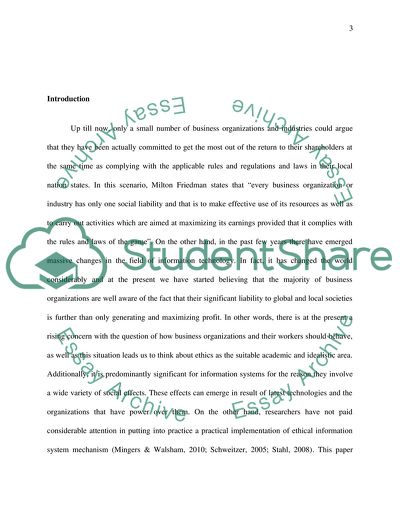Cite this document
(Professional and Ethical Issues in Information Systems Coursework Example | Topics and Well Written Essays - 2000 words, n.d.)
Professional and Ethical Issues in Information Systems Coursework Example | Topics and Well Written Essays - 2000 words. https://studentshare.org/information-technology/1793426-professional-ethical-issues-in-onformation-systems-software-engineering-degree
Professional and Ethical Issues in Information Systems Coursework Example | Topics and Well Written Essays - 2000 words. https://studentshare.org/information-technology/1793426-professional-ethical-issues-in-onformation-systems-software-engineering-degree
(Professional and Ethical Issues in Information Systems Coursework Example | Topics and Well Written Essays - 2000 Words)
Professional and Ethical Issues in Information Systems Coursework Example | Topics and Well Written Essays - 2000 Words. https://studentshare.org/information-technology/1793426-professional-ethical-issues-in-onformation-systems-software-engineering-degree.
Professional and Ethical Issues in Information Systems Coursework Example | Topics and Well Written Essays - 2000 Words. https://studentshare.org/information-technology/1793426-professional-ethical-issues-in-onformation-systems-software-engineering-degree.
“Professional and Ethical Issues in Information Systems Coursework Example | Topics and Well Written Essays - 2000 Words”. https://studentshare.org/information-technology/1793426-professional-ethical-issues-in-onformation-systems-software-engineering-degree.


